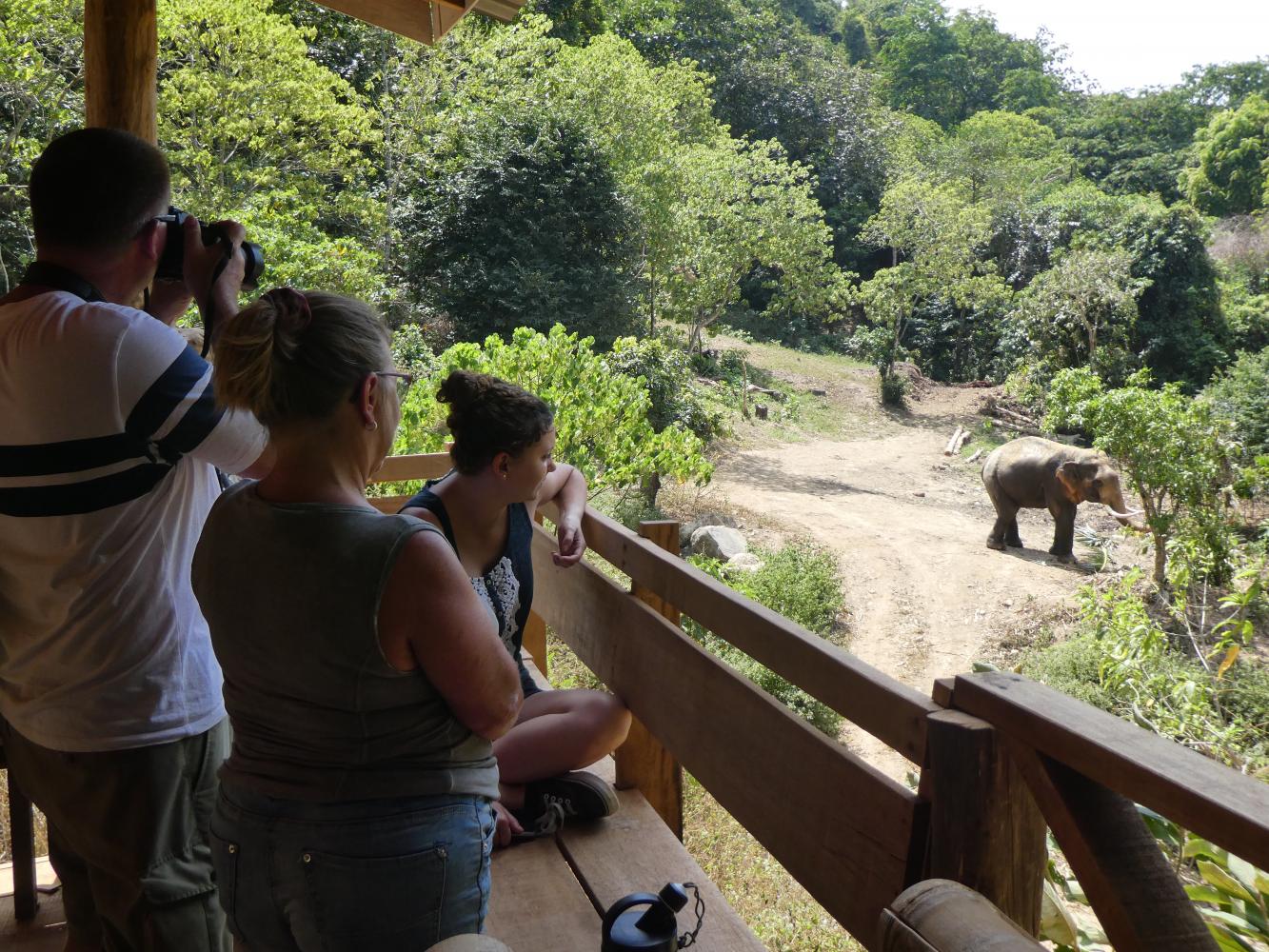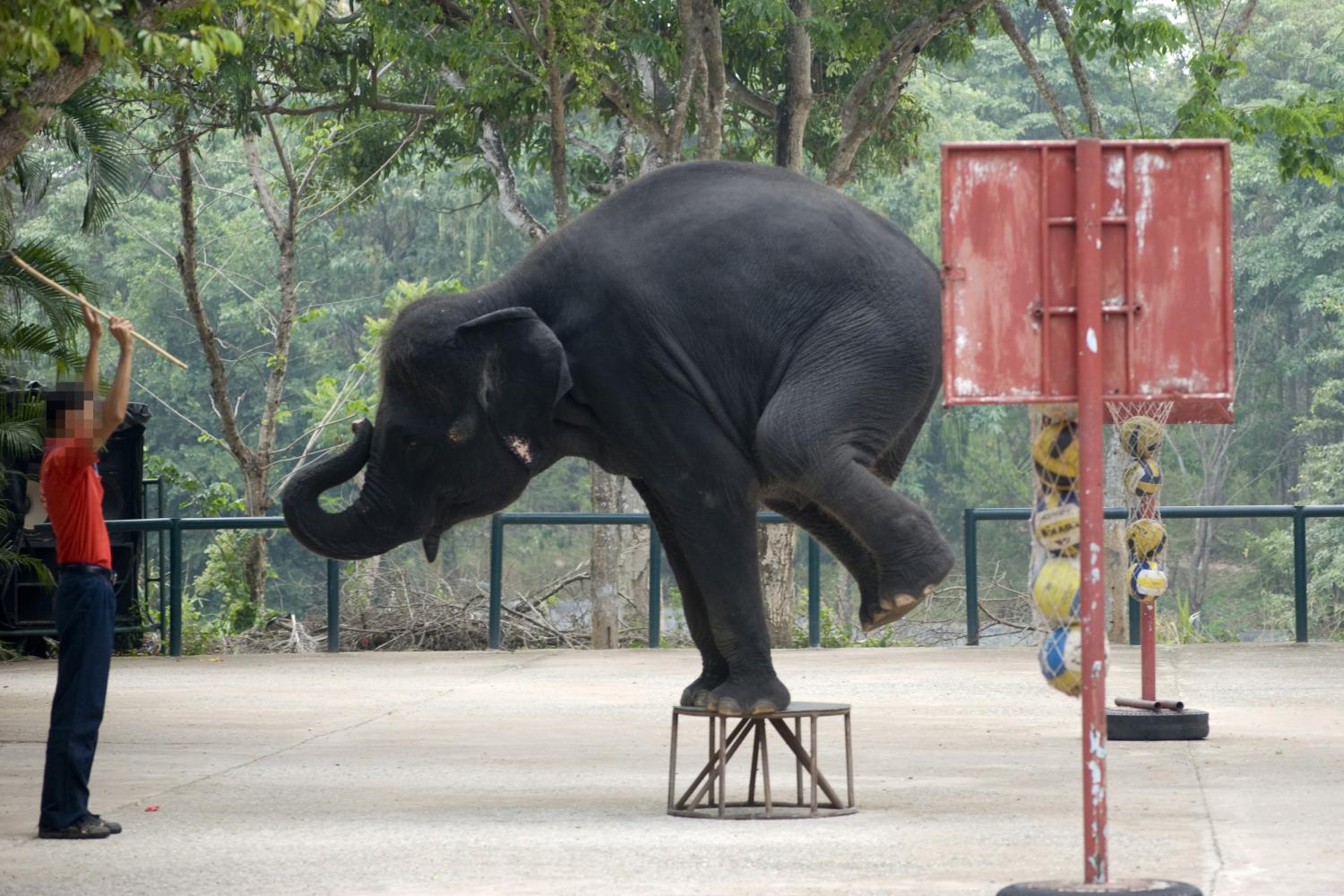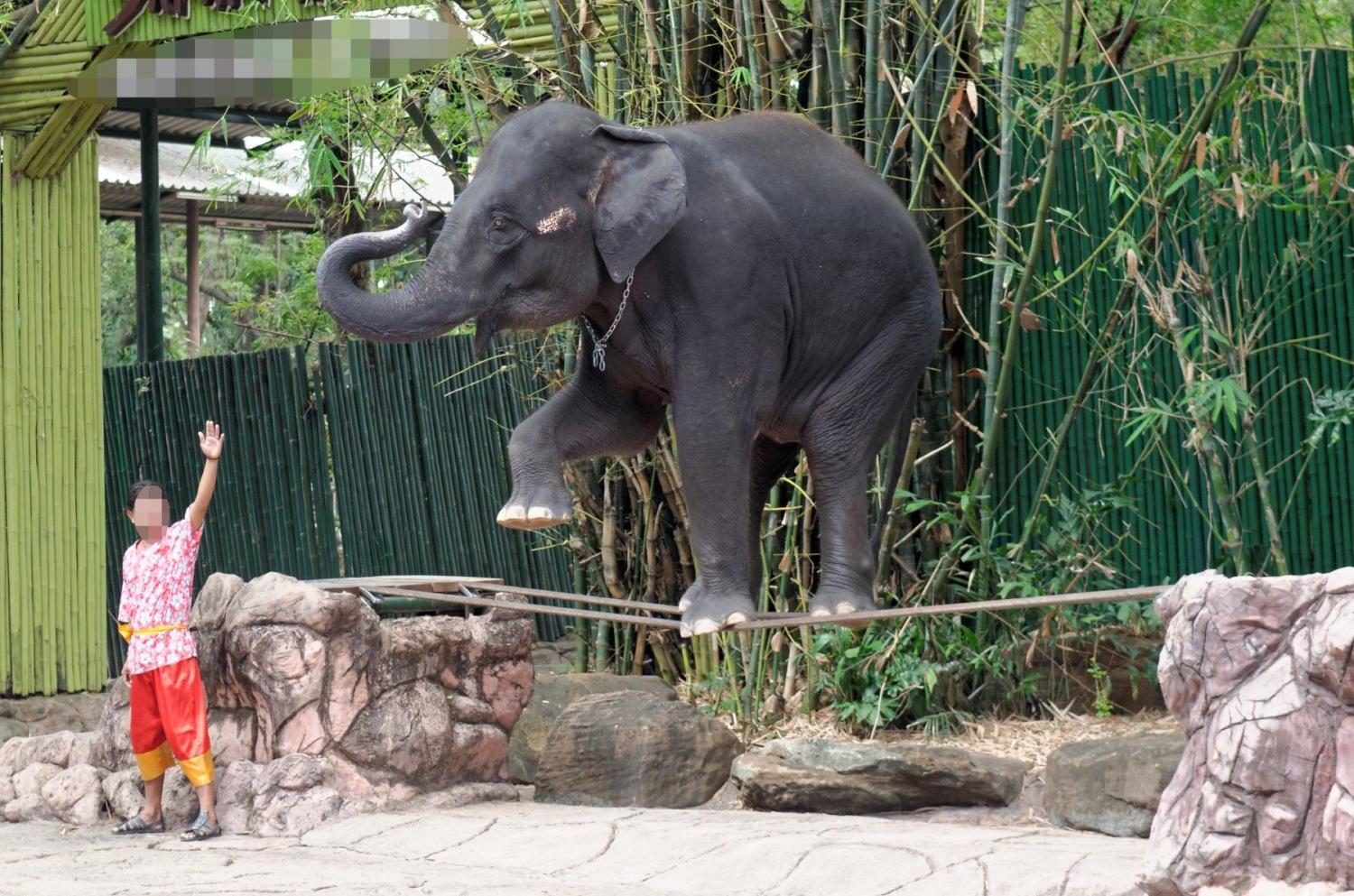In collaboration with World Animal Protection Thailand, the song Pai Hai Sood Yood Show Chang (No Elephant Show) by rapper Tawanwad "TangBadVoice" Wanavit was released earlier this month in observance of World Elephant Day, which falls on Aug 12. The video for No Elephant Show depicts the story of a Thai man taking his foreign friend to see an elephant show. Tawanwad appears in the car taking them to the show, with the rapper explaining to the Thai man through rap that behind the scenes, elephants experience cruel training. The music video includes real footage of the abuse suffered by elephants in Thailand.
Hatai Limprayoonyong, campaign manager for wildlife at World Animal Protection Thailand (WAP Thailand), explained that the campaign and music video No Elephant Show was produced to highlight the cruel treatment elephants endure.
"With Tawanwad's compassion for animals, he quickly understood the campaign and was able to convey the message through song. We are thankful for him to be the voice of the new generation to communicate with the public," said Hatai.

Elephants roam free in sustainable venues. Photos courtesy of World Animal Protection Thailand
As an animal lover, Tawanwad and his family do not support elephant shows, but they once attended one in Chiang Mai because a foreign friend wanted to go.
"I did not know much about elephant shows, but my family and I do not support them because we realise that elephants are forced to be trained and perform. Before I wrote the song, I searched for information about elephant shows and saw videos of elephants being cruelly abused. I was shocked. These practices are violent with the elephants being trained and abused from a young age," the rapper said.
"Elephants are Thailand's official national animal, so foreigners view elephant shows as exotic. The director decided to include videos of abusive elephant training in Stop Elephant Show, to create contrast with the upbeat rapping rhythm."
According to WAP Thailand, 4,000 elephants work in the tourism industry. In the past, elephants were used in the logging industry but fell out of favour after the deforestation policy was launched. After that, elephants began to be used in the tourism industry. Since elephants are wild animals, the training process aims to eliminate their instincts. Hatai explained that elephant skills such as painting, walking on a rope and playing with a hula hoop may look adorable, but these skills actually result in damage and injury to the elephants.
"The first stage is to separate one-year-old elephants from their mothers. This can cause trauma to young elephants. Next, the young elephants are confined in a small space or tied with a rope to train them to stay still. If young elephants are stubborn, they are punished with hooks. After enduring many physical injuries, they learn to follow commands," explained Hatai.
"In the third stage, elephants learn basic commands to walk forward, backwards, left and right. Mahouts still use hooks to punish and train them. In the final stage, elephants are forced to learn special skills such as painting pictures with their trunks, walking on a rope or playing hula hoop. No Elephant Show was released because WAP Thailand aims to inform the public that behind enjoyable and exciting elephant shows, there is cruel training that causes mental and physical harm. We hope that viewers will understand the cruelty of elephant shows and not support them."
Last year, WAP Thailand teamed up with Dusit Poll to conduct a survey regarding the use of elephants in the tourism industry. The survey indicated, from a sample group of 1,116 respondents aged 16 to 55 years, that 85.22% had gone to tourist destinations featuring elephant shows.

Elephants roam free in sustainable venues. Photos courtesy of World Animal Protection Thailand
Among the respondents, 76.6% considered elephant shows a form of cruelty as they involve compelling elephants to exhibit behaviour that deviates from their natural instinct. Additionally, 72.2% believed that tourist attractions do not need to include elephant shows or rides and 68.6% viewed elephant shows as acts of cruelty towards animals.
The survey showed that an increasing number of people do not support elephant shows. The trend of sustainable tourism from abroad also has influenced people to be more concerned about the environment and animal welfare.
"In the past few years, we have seen some changes in the elephant business. They have eliminated some difficult shows such as walking on a rope and riding a bicycle. Some venues have also changed their names to 'sanctuary' in response to sustainable tourism. However, a complete shift has not yet occurred," said Hatai.
To help elephants in the tourism industry, WAP Thailand encourages conventional venues to transform into sustainable elephant-friendly venues. Since such venues are new for Thai tourists, Hatai explained how tourists can distinguish them from conventional ones. "Elephant-friendly venues do not feature shows or other activities that force elephants to behave unnaturally. For safety, tourists can observe elephants but are not allowed to touch or have direct interaction with them. Mahouts allow elephants the freedom to exhibit their natural behaviours. Elephant mothers and their calves are allowed to stay together and unnatural breeding is not permitted," she said.

A young elephant performs for tourists. World Animal Protection Thailand
There are many mahouts in Thailand who may be worried about becoming unemployed if all conventional elephant venues transform into sustainable elephant-friendly venues. Hatai explained that elephant-friendly venues still need mahouts to look after the animals.
"Mahouts will not become unemployed. They have to observe and take care of elephants in their natural settings to prevent these wild animals from harming tourists. Mahouts will be equipped with hooks but only be allowed to use them in emergencies. Elephant-friendly venues can utilise positive reinforcement to encourage elephants to maintain their regular schedules. For instance, around noon, food can be placed near a stream and elephants will remember the schedule and walk to the stream daily for their lunch."
While wild elephants in forests are protected by the Wildlife Conservation and Protection Act, BE 2562, domestic elephants are not covered by this law. Due to this loophole, domestic elephants are more exposed to cruelty. To stop cruelty to captive elephants, WAP Thailand has worked with many experts, government representatives, academics and NGOs to develop and propose the Elephant Bill for elephant protection.
"There are no specific laws to protect domestic elephants from abuse. It depends on how authorities interpret the laws and details of each individual case," said Hatai. "The Elephant Bill aims to provide a long-term solution. The bill will remove current loopholes in the ban on commercial breeding, riding and shows involving elephants. It also includes a provision for elephant funds which requires an annual government statement of expenditure.
"If the bill passes, the welfare of animals will improve, but at the moment, the bill is still pending. WAP Thailand is ready to work with the government and other organisations to advance the bill."

Rapper Tawanwad 'TangBadVoice' Wanavit in No Elephant Show. World Animal Protection Thailand

A young elephant performs for tourists. World Animal Protection Thailand

Rapper Tawanwad 'TangBadVoice' Wanavit in No Elephant Show. World Animal Protection Thailand
